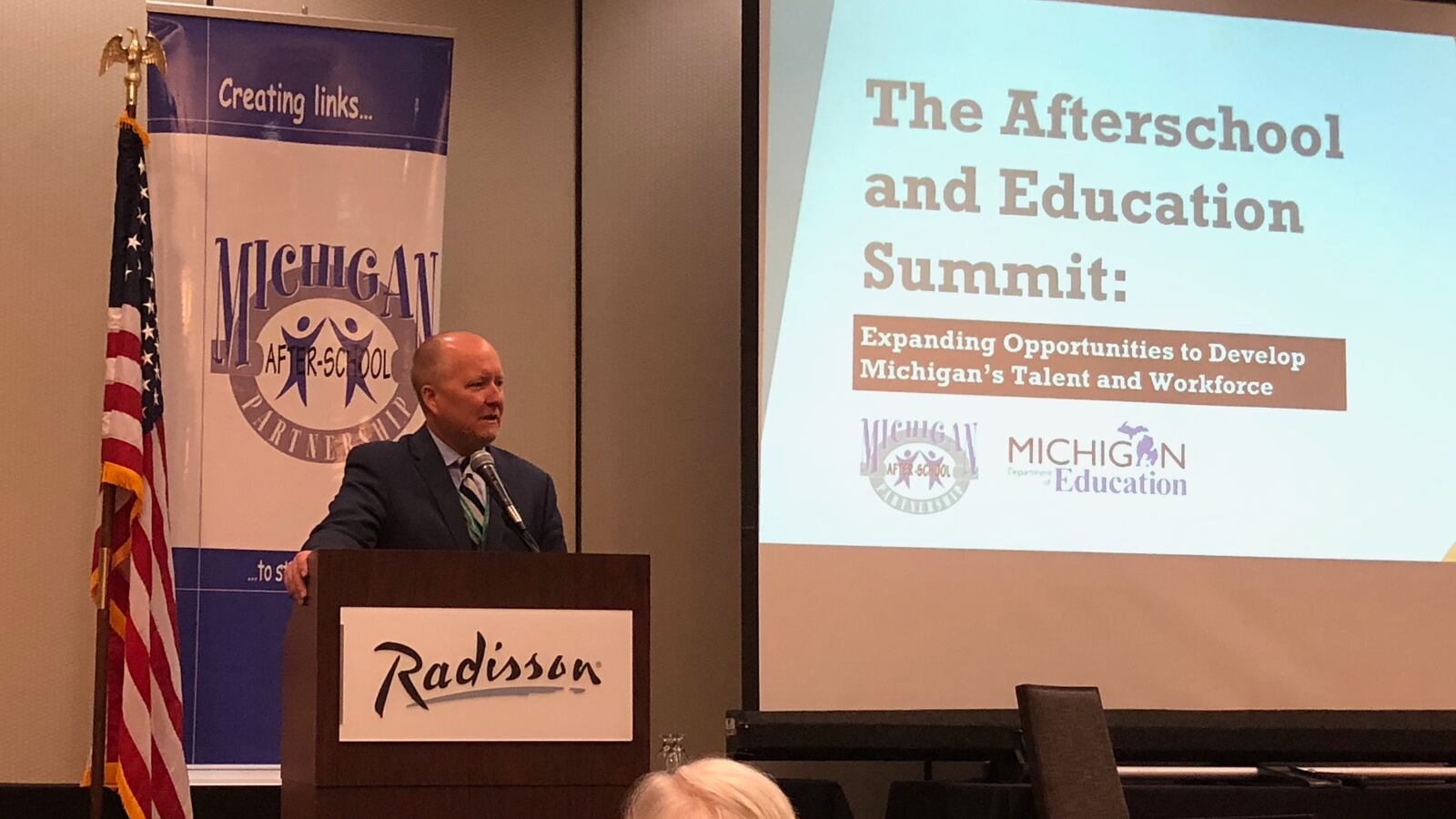Faced with 625,000 students waiting for after-school programming, advocates are calling for a major push to address the issue — and they have their eye on online gambling proceeds to do so.
A larger state investment in after-school could be a game changer for Michigan children, supporters say. They say that giving more children a place to learn and play between 3 and 6 p.m. will mean better test scores, better social skills — even lower rates of obesity and juvenile crime.
And these advocates see a political opening for after-school, despite appearances to the contrary. Gov. Gretchen Whitmer’s proposed education budget doesn’t include any extra funding, and the budget itself is being held up by a partisan battle over the gasoline tax.
But there’s another option, according to Matt Gillard, a former legislator and current president of the advocacy group Michigan’s Children. Online gambling could be legalized this year after a surprise veto from former Gov. Rick Snyder temporarily killed the idea during last year’s lame duck legislative session. Some of the revenue from an 8 percent tax on online bets could be dedicated to after-school programs, Gillard said.
“That would be a great pot of funds that could be directed for after-school,” Gillard, who worked on the state’s pre-k expansion and sees parallels between the two situations, said at the After School and Education Summit in Lansing on Tuesday.
After-school programs in Michigan are run by nonprofits, whereas pre-K programming is administered by the state’s education department. That will make it easier to win support from Republicans wary of expanding the state government, Gillard said. It also eliminates an administrative hurdle, because the nonprofits say they are prepared to expand their capacity.
One wrinkle to the advocates’ plans, though: Senate budget analysts project that legal online gambling would likely reduce the amount of money spent at casinos and on the lottery, which could translate into a reduction in state funding for schools statewide even if it brought in new revenue for after-school programs.
Still, other speakers at the summit also said they sensed the moment might be right to move the needle on after-school.
“We have a window of opportunity here that we haven’t seen for the better part of a decade,” said Paul Liabenow, CEO of the Michigan Elementary and Middle School Principals Association.
After-school programs in Michigan currently rely on roughly $37 million from the federal government plus some private donations. Some programs, like the one championed by Mayor Mike Duggan in Detroit, blend funding from various sources, including local governments and philanthropies.
“The numbers are clear,” said Bill Rayl, president of the Jackson Area Manufacturers Association, who helps run several after school programs that focus on engineering and business skills. “Investment here pays off. Ultimately, if we want to have a highly skilled workforce in this state, that investment is the way to get there.”
But he cautioned against framing the debate in terms of state spending.
“It’s about solving the problem, and money is a part of the conversation, but it’s not the main focus,” he said, adding that the focus should be on collaboration between businesses, philanthropies, and the state.
Brad Paquette, a Republican representative and vice chair of the House Education Committee, said he’s open to the idea.
“I have been involved in multiple conversations in my community about the need for after-school and summer programming, and how we can create those programs with community partners,” he said. “I would be interested in learning more about this effort to expand after-school programming at the state level.”
For Liabenow and others, it’s a simple matter of supply and demand. There are three times as many Michigan students waiting for slots in an afterschool program than there are students enrolled, according a report from Grand Valley State University.
Parents like the programs because they allow them to work full-time without worrying about what their children are up to. At high-quality programs, students work on homework or expand on their programs in hands-on projects.
Michigan already has 68 federally funded programs, and they seem to be working as advertised. Researchers Michigan State University in 2017 found that participating students received a substantial academic boost.
But that’s not enough for a bi-partisan school funding research group whose landmark study is regarded by many experts — not to mention Gov. Gretchen Whitmer — as a blueprint for reform in Michigan. They recommended adding money to the budget for after-school programs.
Students caring for themselves after school while their children work “is one of the most dangerous things that can happen to children,” said Deborah Lowe Vandell, a professor at the University of California, Irvine. She’s studied the effects of after-school programs on crime, obesity, social development, and academic outcomes, and concluded in each case that it makes a substantial difference.
The benefits are especially pronounced for low-income students, she told attendees at the Summit. Yet many such students still lack access to after-school programs, even as wealthy parents spend ever-growing amounts of money on extra-curriculars for their children.
“Low income children may benefit the most, but they have the least opportunity,” she said.


